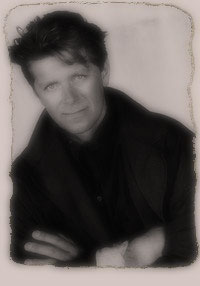 This may be hard to believe, but there's a dark side to starting a solo career with two No. 1 singles. Ask singer Peter Cetera. He's still trying to straighten things out. Last year the former member of the pop-rock band Chicago started his solo career with a No. 1 single, "Glory of Love," the theme from "The Karate Kid Part II." But most fans of the record didn't even know it was Cetera singing the song, which he'll perform at the Oscars on Monday. The tune, which he co- wrote, is a best-song nominee. "People thought 'Glory of Love' was the new Chicago song," Cetera said in a recent interview. "A lot of them went looking for the Chicago album. They didn't know about me as a solo artist. . . . They said, 'Peter who?' " During breakfast in West Hollywood, the soft-spoken Cetera became increasingly exasperated as he explained his plight. It was a rare visit in town for this Chicago native and longtime Malibu resident who now lives in Idaho. "My first No. 1 single ("Glory of Love") really cost me," he continued. "It was my hit, but I couldn't really take full advantage of it." The problem was that the single appeared on both "The Karate Kid Part II" sound-track album and on Cetera's Warner Bros. solo album, "Solitude/ Solitaire." Because of Cetera's low profile, most people who wanted the single simply bought the sound track. "My album lost about 150,000 sales," Cetera explained, shaking his head. "It's one of the things I thought might happen when I agreed to do the theme song for the movie. It's one of those things you live with." Even though the second single, "The Next Time I Fall"--a duet with Amy Grant--was also No. 1, his album is still about 200,000 copies short of the platinum sales figure that you'd expect for an album with two No. 1 hits. The sales boost after "Next Time" simply wasn't enough to make up for the sales lost because of the "Karate Kid" confusion. Meanwhile, the second hit created another problem for Cetera. Because he's singing with gospel star Grant, people have begun asking him how long he's been a born-again Christian. Cetera worries that the "born-again" image could cause people to pigeonhole him as a gospel artist, when he is aiming for a more well-rounded pop stance. "I'm not a born-again Christian," he insisted. "I have nothing against it. It's just not my thing. I hope people get that straight." Cetera, 42, joined Chicago in 1969, two months after the band was formed. His delicate, romantic voice is identified with such Chicago hits as "Hard to Say I'm Sorry" and "Stay the Night." The band slumped in the late '70s, but was rejuvenated on Warner Bros. Records in the '80s. Cetera, who wrote nearly all the material for the 16th and 17th albums with David Foster, was a major factor in the rebound. But when the band was thinking about recording a new album last year, Cetera was thinking about a solo LP. "It was time for me to do it," he explained. "The idea gets in your system and festers until you do something about it. The group wanted to do more touring and do another album. I didn't care about that. I wanted to do my own album." This isn't Cetera's first solo album, however. He did another one, called "Peter Cetera," about seven years ago, while the band was still in its slump. Cetera wanted to shake his ballad image with that album, but the attempt at rock 'n' roll didn't go over and it took him years to rebuild his confidence enough to try another solo effort. "I had to try a solo album again," he said. "I was determined to do it until I got it right. If this one hadn't worked I would have tried again. I was through with the group. I have to be on my own. There's no other way." TONY BARNARD / Los Angeles Times Copyright Times Mirror Company 1987 |